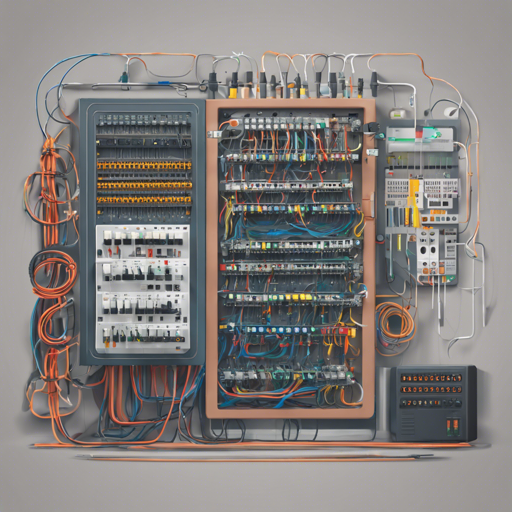Ever dreamed of controlling your smart devices seamlessly from one platform? Enter SwitchBoard, a Node.js based application designed to facilitate communication between all web-capable devices on a local network. Whether you’re leveraging a Raspberry Pi or a dedicated server, let’s break down the steps for setting up your own SwitchBoard—because who doesn’t want an electronic orchestra at their command?
Getting Started: Installation Made Easy
Before diving in, ensure you have Node.js installed on your device. You can get it from the Node.js website.
- Open your terminal and run the following command to install SwitchBoard:
npm install -g git+https://github.com/imbrianj/switchBoard.gitswitchBoard -c yournewconfigfilehttp://192.168.2.13:8181 (adjust the IP as required).Once you’re on the dashboard, feel free to bookmark it for future access. After all, convenience is key!
Advanced Setup: Personalize Your Experience
If you’re feeling adventurous or have specific requirements, download the source and customize the config/config.js file. Make sure to set your Node server IP and desired port. Once your edits are done, run:
node app.jsNow, revisit your previously bookmarked SwitchBoard URL and enjoy the fruits of your labor!
An Analogy: Understanding SwitchBoard Functionality
Think of SwitchBoard as your local neighborhood post office. Just as the post office helps you send and receive messages between different houses, SwitchBoard facilitates commands among web devices on a local network. When a device sends a command—much like dropping a letter in the mailbox—SwitchBoard ensures it reaches the intended device. Depending on your configuration, it can even learn over time, akin to a post office using patterns to determine the fastest routes for delivery!
Troubleshooting: Keep It Smooth
As with any technological endeavor, problems may arise. Here are some troubleshooting tips:
- If you encounter connectivity issues, ensure all devices are connected to the same network.
- Check that you’ve correctly configured your config file. Missing or incorrect values can lead to hiccups.
- Remember, if your connection state indicator is red, SwitchBoard is attempting to reconnect—patience is key!
- For more insights, updates, or to collaborate on AI development projects, stay connected with fxis.ai.
If none of these solutions work, you can reach out to the community on ##switchboard on IRC.
Final Thoughts
The potential for your unique smart setup is vast with SwitchBoard. As you tailor it to your needs, add devices, and explore its capabilities, you’re taking a step into the future of home automation. At fxis.ai, we believe that such advancements are crucial for the future of AI, as they enable more comprehensive and effective solutions. Our team is continually exploring new methodologies to push the envelope in artificial intelligence, ensuring that our clients benefit from the latest technological innovations.
Conclusion
Whether for personal use or broader automation tasks, SwitchBoard can be as simple or as powerful as your imagination allows. Get started today and enjoy the convenience of a fully integrated smart device ecosystem!

